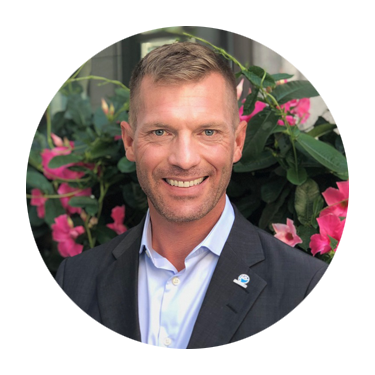The arrival of November often takes its toll on our morale. The weather is cold and gloomy, the time changes, it gets dark very early in the evening… In short, nothing to help us! The effects of the lack of light at this time of year, particularly on energy levels and mood, are no longer in question. So, the GO™ Clinic team thought we’d address this issue on our blog and give some strategies that can help us cope with the lack of light this time of year.
Why doctor?
With the decrease in outdoor light that occurs with the time change in November, the days feel much shorter to us. It is important to know that this has a direct effect on our biological clock, i.e. on our sleep-wake cycle. Indeed, the latter is directly influenced by the day and night cycle. The level of exposure to natural light has an impact on this cycle. When it gets darker, a part of our brain, the hypothalamus, sends signals to another part of the brain to activate the production of melatonin. Melatonin is known as the “sleep hormone”.
Melatonin production slows down the body’s activity and sends signals of fatigue. Thus, the decrease in outdoor light in the fall affects our sleep-wake cycle, which translates into several effects in our daily lives:
- A general lack of energy or a decrease in energy levels at the end of the day;
- A decrease in attention and concentration during the day;
- Difficulty falling asleep at night;
- A greater fatigue when waking up, it is more difficult to get out of bed.
It is important to understand that this is not a sign that you are not getting enough sleep or that you need to sleep more, since these are caused by the disruption of the internal clock.
Seasonal affective disorder: it is real
It is normal to be affected by seasonal changes and the time change. However, by putting into practice some of the strategies presented below, we can generally manage to cope better with these times of the year. It is therefore important to differentiate the disorder that some people have to deal with.
In fact, some people have a real disorder associated with the lack of light in winter, namely seasonal affective disorder. This is better known as “seasonal affective disorder“. It is estimated that it affects 2 to 3% of the Canadian population. It is a real and serious condition that requires adequate medical and/or psychotherapy treatment.
If you need it, know that GO™ Clinic offers online psychology services, which can help you if you are living with seasonal affective disorder.
Strategies for living better with the lack of light
So here are some general tips that can help you better cope with the lack of light in the fall and winter.
- Get as much exposure to natural light as possible: It is recommended that you try to spend at least 30 minutes outside each day to take advantage of natural light. A walk at lunchtime can be a good habit to adopt.
- Create your own light at home: lights adapted to our lighting needs, candles, dawn simulator alarm clock, light therapy… There are many ways to take advantage of good lighting and increase light in our home to help the brain keep us awake throughout the day.
- Have a good sleep schedule: to fall asleep better and to wake up feeling good, it is best to maintain a regular schedule for going to bed and getting up. This helps regulate the sleep cycle.
- Be physically active: Playing sports is great for your mood and overall mental health. It’s important to stay active, even during the cold season. Plus, outdoor sports allow for exposure to daylight!
- Avoid screens before bedtime: we’ve heard this a lot, but that’s because it’s really important to help us get to sleep. You should avoid exposure to blue light from screens 30 to 60 minutes before going to bed. Why not take the opportunity to do a relaxing activity like reading or meditating?
We hope these tips will help you get through November and the winter months, which can sometimes seem like a long time! Remember, GO™ Clinic has a whole team of professionals to help you with your health and social service needs, whether through our in-home services or via teleconsultation.
 Approuvé par Francis Desjardins
Approuvé par Francis Desjardins



